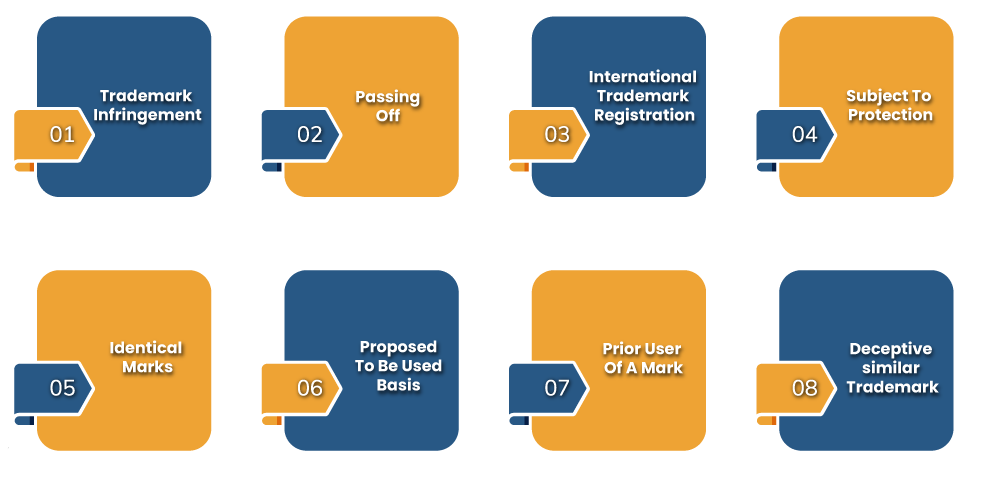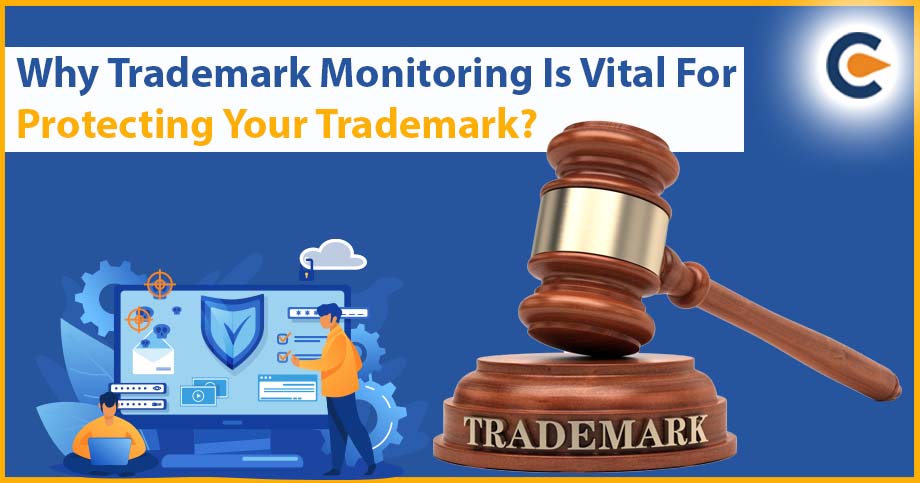In recent times there has been constant inflation in important trademark judgments in India. Some of the judgments under trademark have been a landmark in terms of the precedents set by Indian Judiciary. Discussed below are historical judgments under trademark in India.


Cases on Trademark Infringement
Section 29 of the Trademark Act, 1999 defines trademark infringement as using a mark that is ‘identical’ or ‘deceptively similar’ to a trademark registered by an unauthorized person. Following are the judgments under trademark infringement, which are given below:-
The Coca Cola Co. vs. Bisleri International Pvt. Ltd
Bisleri originally owned the trademark of the common beverage MAAZA, sold it to Coca Cola in India. Bisleri later applied for the registration of the MAAZA trademark in Turkey and began exporting mango drinks with the trademark of MAAZA. Coca-Cola[1] appealed to Indian courts to ban Bisleri from making drinks, along with damages against Bisleri and infringement of its trademark MAAZA. Coca-Cola was successful in obtaining a temporary injunction against Bisleri for trademark infringement.
Cadbury India Limited and Ors. vs. Neeraj Food Products
The plaintiff is a well-known manufacturer of chocolate and confection and has a registered trademark ‘GEMS ‘ on its name. The plaintiff reached court for an injunction against the defendant, allegedly selling a product under ‘JAMES BOND,’ similar to the plaintiff’s ‘GEMS ‘product in packaging and shape. The plaintiff alleged that the product sold with the mark ‘JAMES BOND’ was misleading ‘GEMS ‘.
The court held that the defendants’ products were, in fact, deceptively similar to the plaintiffs, and they granted injunctions prohibiting the defendants from selling the said products.
Read our article:Trademark Registration and Process for Trademark Objection
Cases on Passing Off
If a person sells their goods as the goods of another, the trademark owner can take action as it becomes a case of passing off. Passing off is used to protect the goodwill associated with unregistered trademarks. Following are the judgments under trademark passing off.
Cadila Health Care v. Cadila Pharmaceutical Ltd.
The Supreme Court after evaluating the provisions of Trademark Act, 1999 conclusively established that the plaintiff and the defendant trade in the same area or similar products. The Court has laid down certain criteria for determining the unregistered trademarks:-
- The nature of the mark (word, label or overall);
- Degree of similarity between scars;
- The nature of the goods for which the mark is used;
- Equality in nature, character and performance of goods of rival traders;
- The category of buyers most likely to buy the marked goods;
- Method of purchasing or ordering goods; and
- Other circumstances that may be relevant.
Cases on International Trademark Registration
Trademarks are territorial, and therefore, will require separate filings in each country where you intend to protect it. There are international conventions such as the “Madrid Protocol” which act as a national registration system for trademark authorize in all other member states.
Milmet Oftho Industries & Ors. vs. Allergan Inc
In this judgment, the appellant, an Indian pharmaceutical company, was barred by the “Apex Court” from adopting the trademark ‘OCUFLOX’.
The “Apex Court” said that notwithstanding the mark was neither registered by the defendant in India nor used by the defendant in the Indian market. It had to be protected as the defendant was the first to enter and register in the world market.
This decision upheld the principle of trans-border reputation. The Court also affirmed that in the field of medicine, any and all possibility of confusion and deception should be stopped in the public interest.
Cases Subjected to Trademark Protection
The judgment under trademark mentioned below is subject to trademark protection.
Pidilite Industries Limited vs. Poma-Ex Products & Ors
In this judgment, the defendant was accused of dishonestly using ‘KWIK’, a part of the plaintiff’s trademark. The defendant was using the trademark KWIKHEAL ‘and the product packaging was similar to the plaintiff’s FEVIKWIK’ product.
The Bombay High Court held that the mark ‘KWIK’, being a major part of the plaintiff’s trademark, could not be adopted by the defendant. The court further noted that the phonetic similarity between the scars would easily mislead and deceive consumers. ‘KWIK’ was considered a major part of the plaintiff’s trademark and an injunction prohibited the defendant from using the same.
Cases on Identical Marks
An identical trademark is classified as any mark that is a reproduction of an already registered trademark. For a trademark to be deemed as an identical trademark, it does not need to be an exact copy of another mark. Following are the judgments under trademark concerning the identical marks.
H&M Hennes & Mauritz AB Anr. vs. HM Megabrands Pvt. Ltd. & Ors
The Plaintiff, a well known fashion brand with thousands of outlets globally had adopted the ‘H&M’ trademark in 1970 and it was incorporated in India in year 2005. The Plaintiff claimed that the Defendant had infringed their trademark by depicting their ‘HM’ mark by using the same red and white colour combination as used by the Plaintiff.
Defendants argued that their use and adopting the mark was impeccable and the mark stood for the names of its directors. The defendant further contended that since the plaintiff entered the Indian market much later, his mark did not gain any repute.
The Court passed the judgment in favor of the Plaintiff and upheld that in case of a brand having trans-border reputation it is not essential for them to set up outlets in India to secure their trademark in India. Therefore, the defendant was barred from using the mark HM mark or any other misleading alteration of the same.
Cases on Proposed Usage Basis
Multinational Corporation cannot allege right on Trademark if they do not use it in India. Following are the judgments under trademark proposed to be used basis.
Cases on Legal Principle of ‘Prior User of a Mark’
In this recent judgment passed by the Delhi High Court, the Court recognized the legal principle of a former user of a mark. The court’s decision in the case reiterated the law that the former user of the trademark will override the latter user even if the latter user has registered the trademark. Following are the judgments under trademark based on the legal principle of prior user of a mark
M/s R. J. Components and Shafts vs. M/s Deepak Industries Ltd
Facts of the case- The immediate case was initiated by the Rajiv Kumar, who claimed to be the sole owner of M / s. RJ Components and shafts (plaintiff company) against defendants to prohibit them in any manner using the plaintiff’s registered trademark NAW.
The plaintiff alleges that the defendants in the case who are engaged in a similar business have recently started manufacturing gear and have adopted the trademark exactly “NAW” of the plaintiff.
Order Passed by Court
Delhi High Court has in this case considered the right of the former user to be a superior right that exceeds the registered owner of the same or similar trademark. In view of the above facts, the Delhi High Court barred the plaintiff from using the NAW mark.
Cases on – Similar Trademark Issued For Different Items Does Not Amount To Breach of Law
It is no violation of law if two distinctive products were marketed by two different industries with a “deceptively similar” trademark. Following are the judgments under trademark for similar trademark issued for different items does not amount to breach of law:-
Nandini versurs Nandhini
A bench of Justices AK Sikri and Ashok Bhushan separated the products for which deceptively similar trademarks were used. Whereas ‘Nandini’ was for milk and milk products, animal feed and other allied items, ‘Nandhini’ trademark was used for meat, fish, poultry, meat extracts, preserved, dried and cooked fruits and vegetables, jelly, jam, eggs, milk and milk products, edible oils and fats, salad dressings, etc.
The court stated, “Nandini / Nandhini are a generic name, which in Hindu mythology represents a goddess and a cow, and is not an invented or coined word for controversy.
Concluding Remark
With each judgment, the trademark infringement scope is being widened and further clarified by the Indian courts. India’s domestic scenario is also working with start-ups, prompting many large businesses to exercise their trademark rights against deceptively similar products and brands.
New issues related to international businesses are coming up every day. The requirement of the hour is an international legal framework capable of being universally enforced to prevent and cure trademark infringement worldwide. Kindly associate with the CorpBiz expert to know more about the judgments under trademark.
Read our article:Importance of Claiming a “User Date” in Trademark Registration Application











